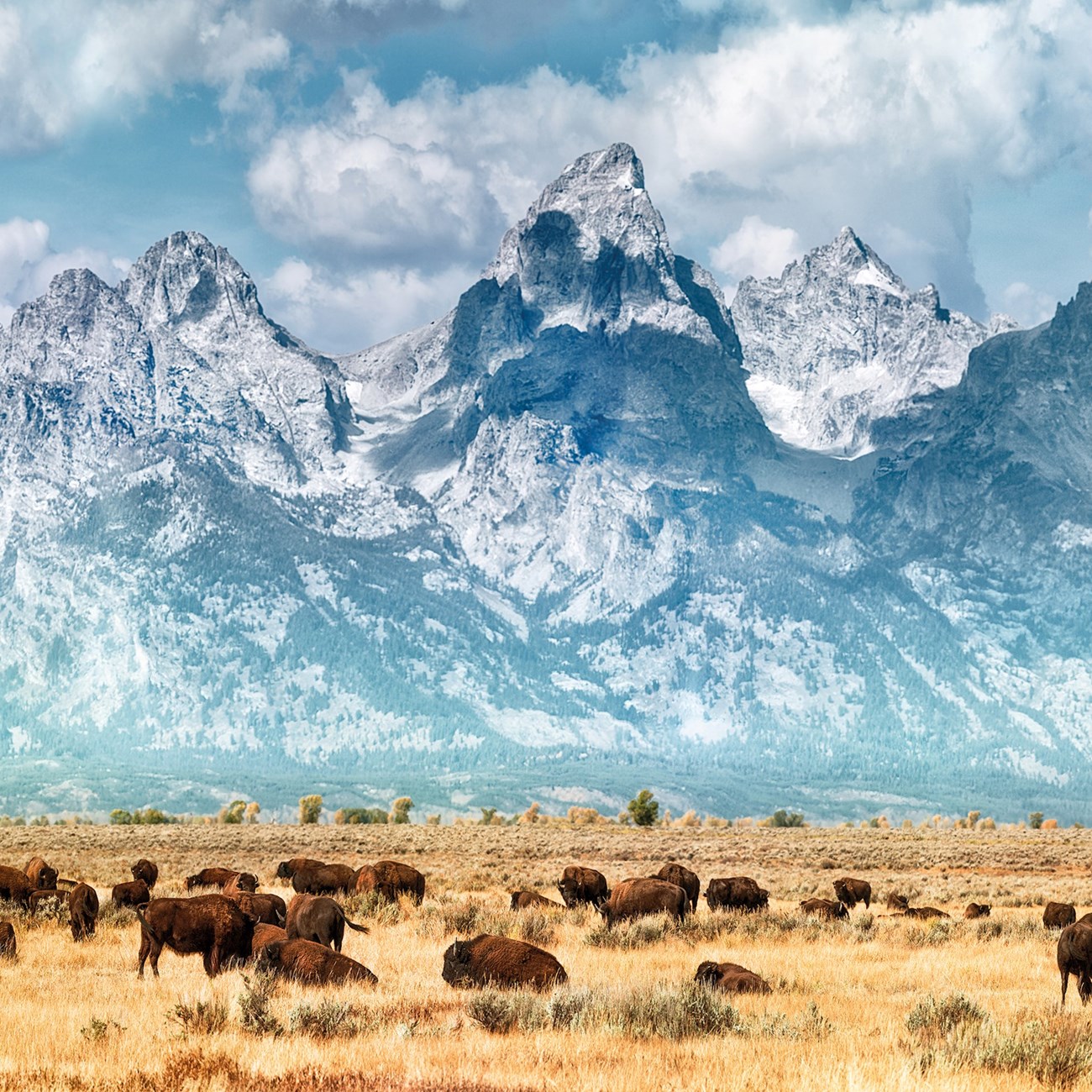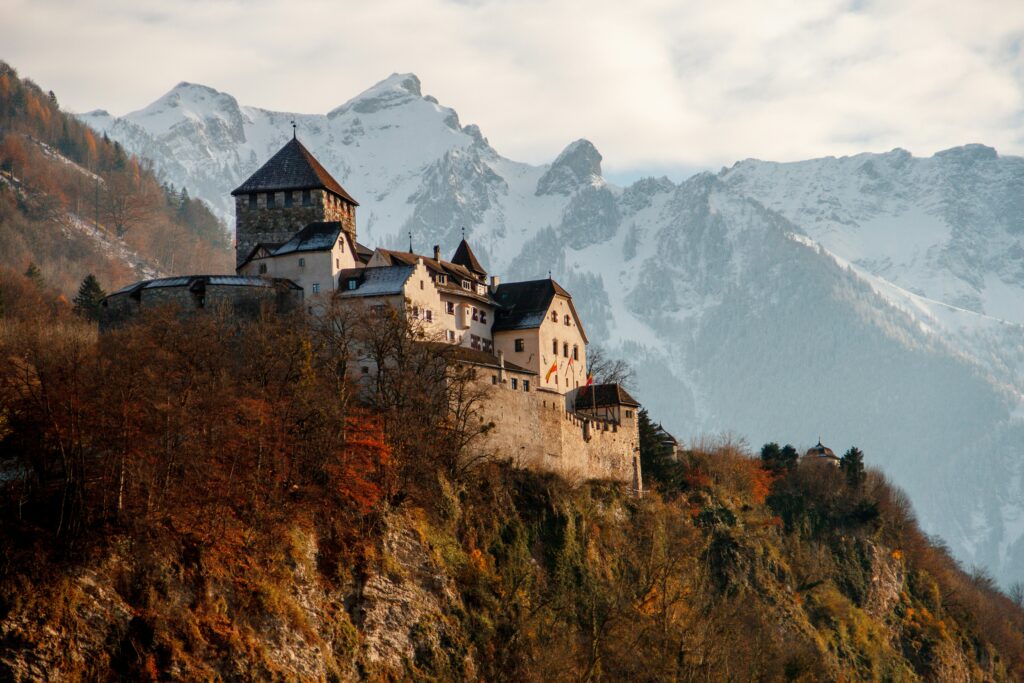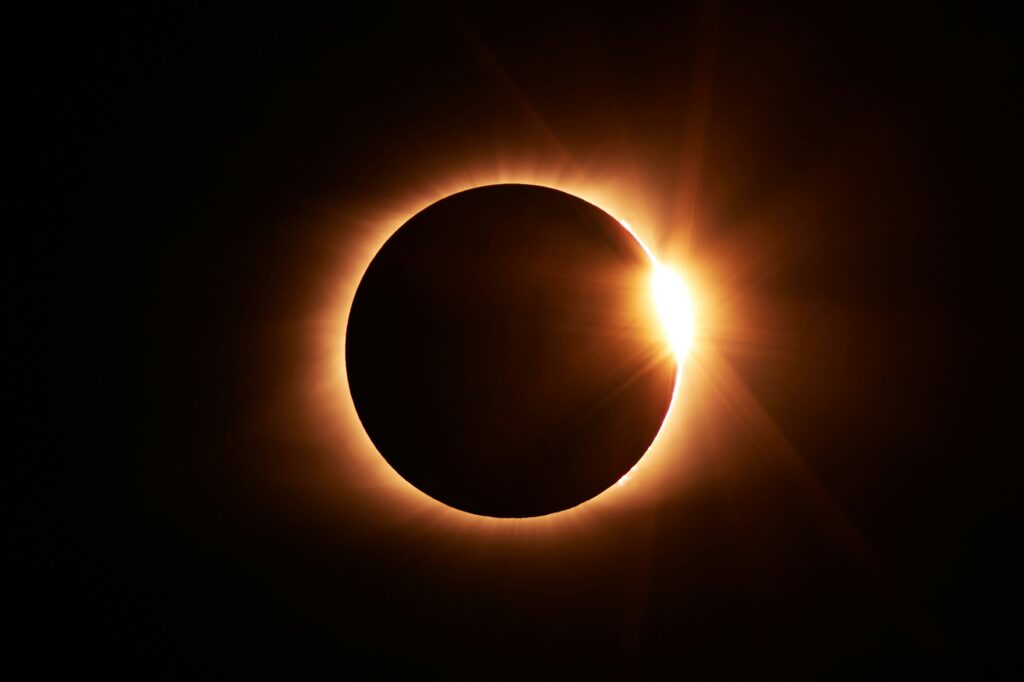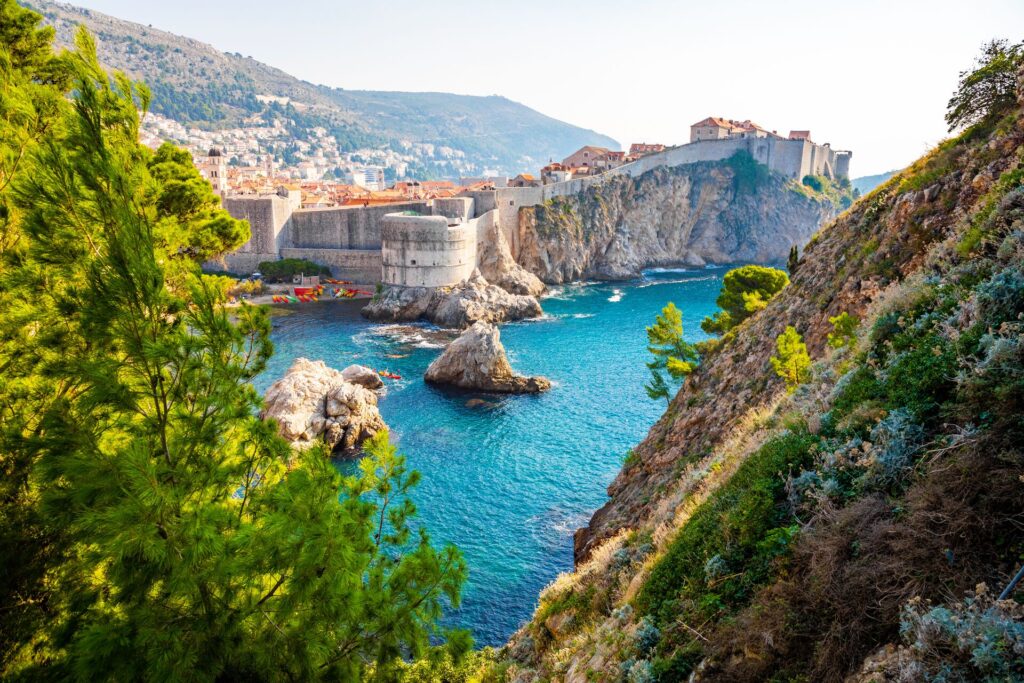Why June is the Best Time to Visit Yellowstone National Park
A major legacy – The first National Park in the United States
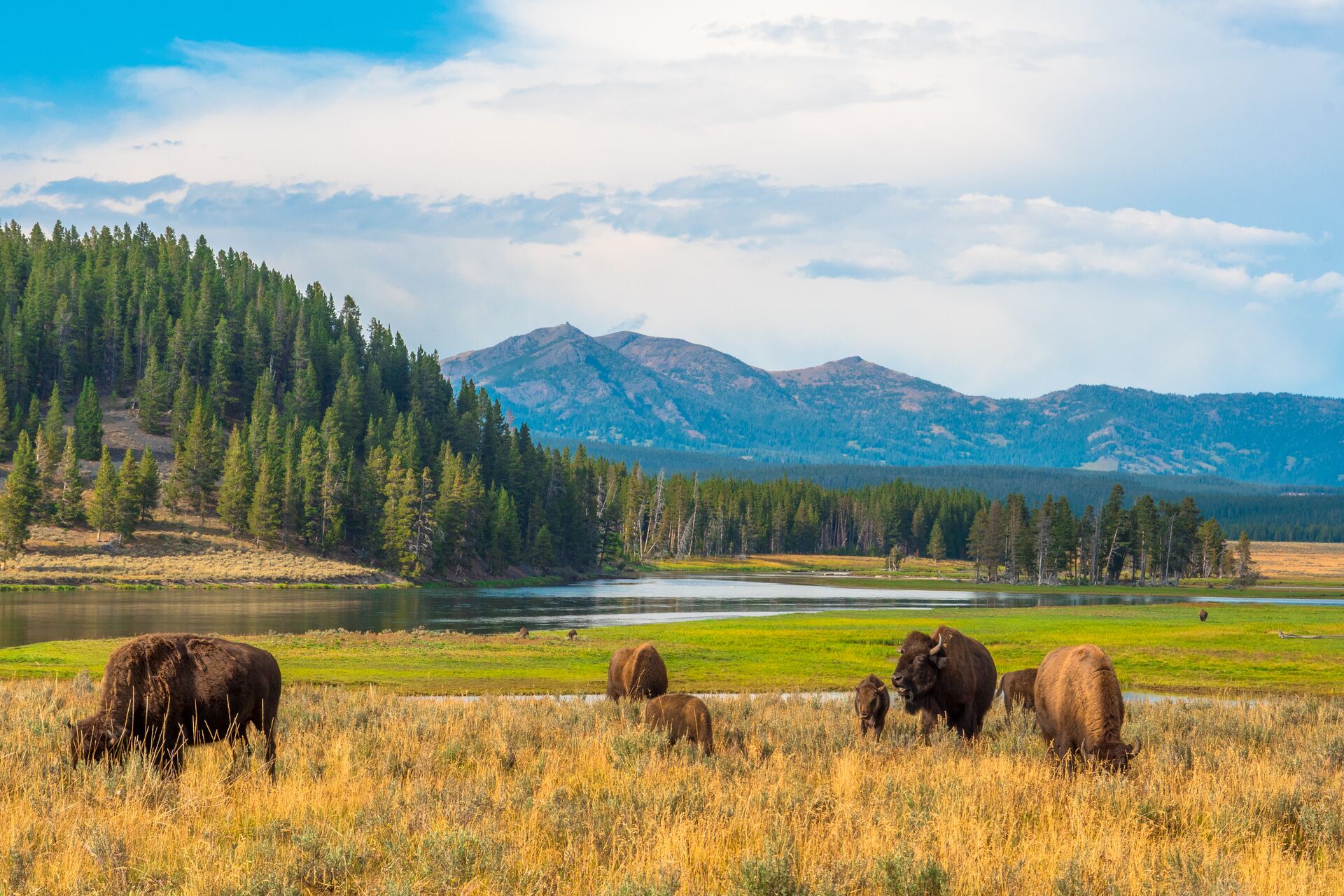
Primarily located in the U.S. state of Wyoming, Yellowstone National Park holds the distinction of not only being the first national park in the United States, and one of the first in the world.
The park’s history can be traced back to the early 19th century when various explorers and trappers ventured into the area. Their reports of geysers, hot springs and abundant wildlife sparked interest and curiosity among the public. In 1871, a geological survey led by Ferdinand V. Hayden further highlighted the extraordinary features of Yellowstone. Known as the Hayden survey, its findings, along with the tireless efforts of conservation advocates, paved the way for the creation of the national park.
In 1872, on March 1st, President Ulysses S. Grant signed into law the bill that officially designated Yellowstone as a national park. It set a precedent for the conservation movement in the United States, eventually leading to the creation of the National Park System in 1916.
Spanning over 2.2 million acres Yellowstone National Park today remains an iconic symbol of America’s commitment to preserving its natural heritage and is a beloved destination for millions of visitors each year.
Witness geothermal marvels
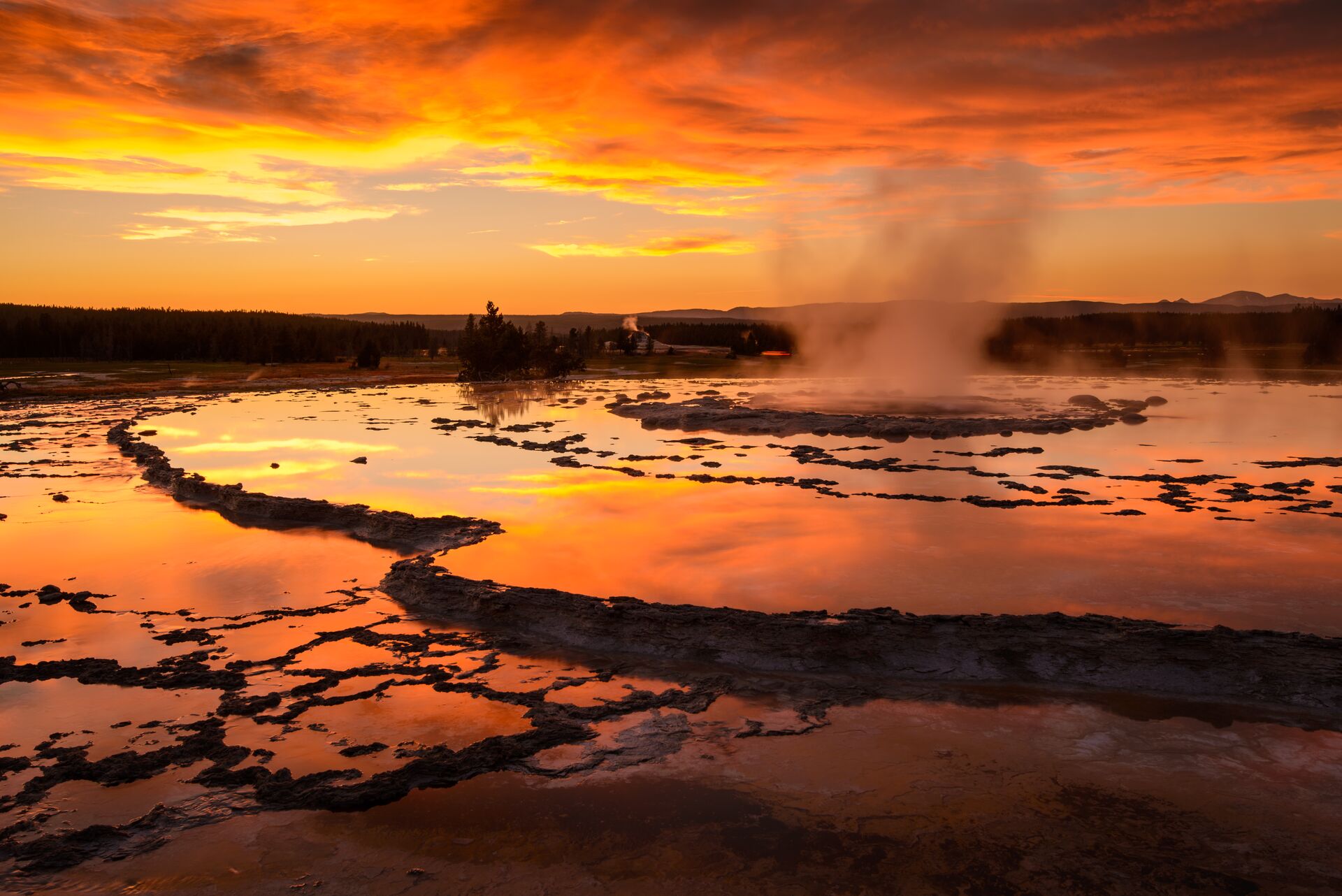
The park’s geothermal activity is at its peak in June, whilst visitor numbers are still lower than the full summer crowds. Powerful eruptions, vibrant hot springs, bubbling mud pots and steam vents entertain. These unique geological features are a result of the park’s location atop the Yellowstone Caldera, one of the largest active volcanic systems on Earth.
Among the geothermal highlights is the famous Old Faithful geyser, which reliably erupts approximately every 90 minutes, shooting a column of scalding water and steam high into the air. Visitors can witness this natural spectacle and explore the surrounding Upper Geyser Basin, which is dotted with numerous other geysers, such as Castle Geyser and Grand Geyser.
Yellowstone’s hot springs, like the vibrant Grand Prismatic Spring, captivate with vivid colors caused by heat-loving microorganisms called thermophiles. Hot water interacting with limestone at the Mammoth Hot Springs, whose terraces showcase intriguing mineral formations. The park is also home to the Norris Geyser Basin, where the world’s tallest active geyser, Steamboat Geyser, occasionally erupts with powerful jets of water.
Abundant wildlife encounters
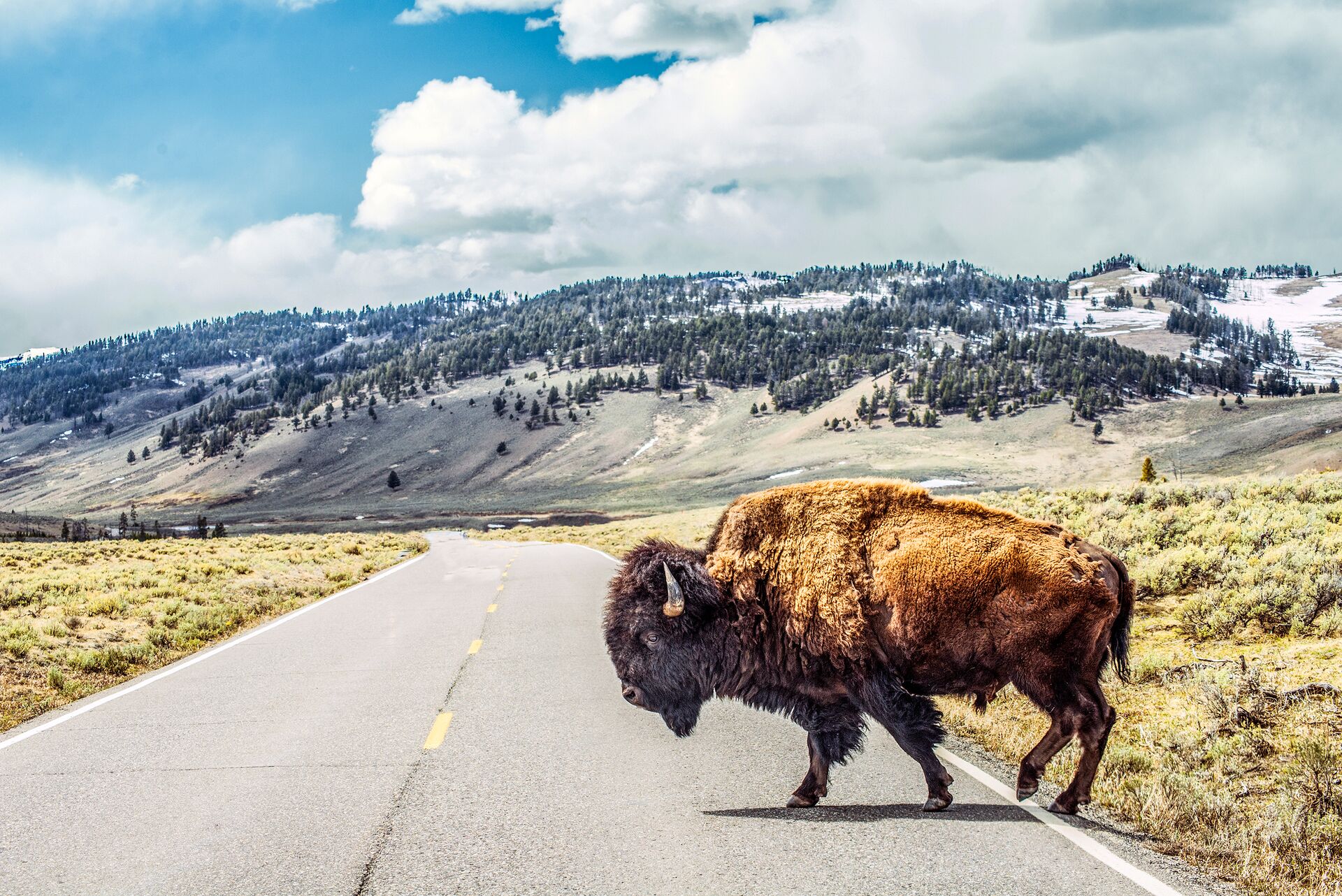
June marks the beginning of the peak wildlife season, making it the best time to visit Yellowstone National Park for wildlife watching. A wildlife enthusiast’s paradise, the park’s unique ecosystems support a diverse and abundant range of animals.
One of the most iconic residents, the American bison, can often be seen roaming in large herds across the grasslands. Elk can be observed grazing in meadows and the park also supports a healthy population of gray wolves. Their reintroduction in 1995 marked a milestone in wildlife conservation efforts. Other notable predators include grizzly bears and black bears, while smaller carnivores like coyotes, foxes and bobcats can be spotted as well. Make sure to brush up on your bear safety before you visit.
Hayden Valley, located in the center of the park, is one of the best places to see wildlife in Yellowstone. You’ll spot countless herds of elk and bison, and even the occasional grizzly bear as well as waterfowl, including ducks, Canada geese and pelicans near the Yellowstone River. Yellowstone lake is also a draw for all kinds of wildlife.
Yellowstone’s rivers and lakes provide habitat for various fish species, including the endangered Yellowstone cutthroat trout. Birdwatchers can delight in the park’s avian diversity, with over 300 species including bald eagles, ospreys and great gray owls.
The middle of the day time isn’t the bed time to spot wildlife; animals are most active at dawn and dusk. If you’re going early, aim to be in the valleys before sunrise for the best odds.
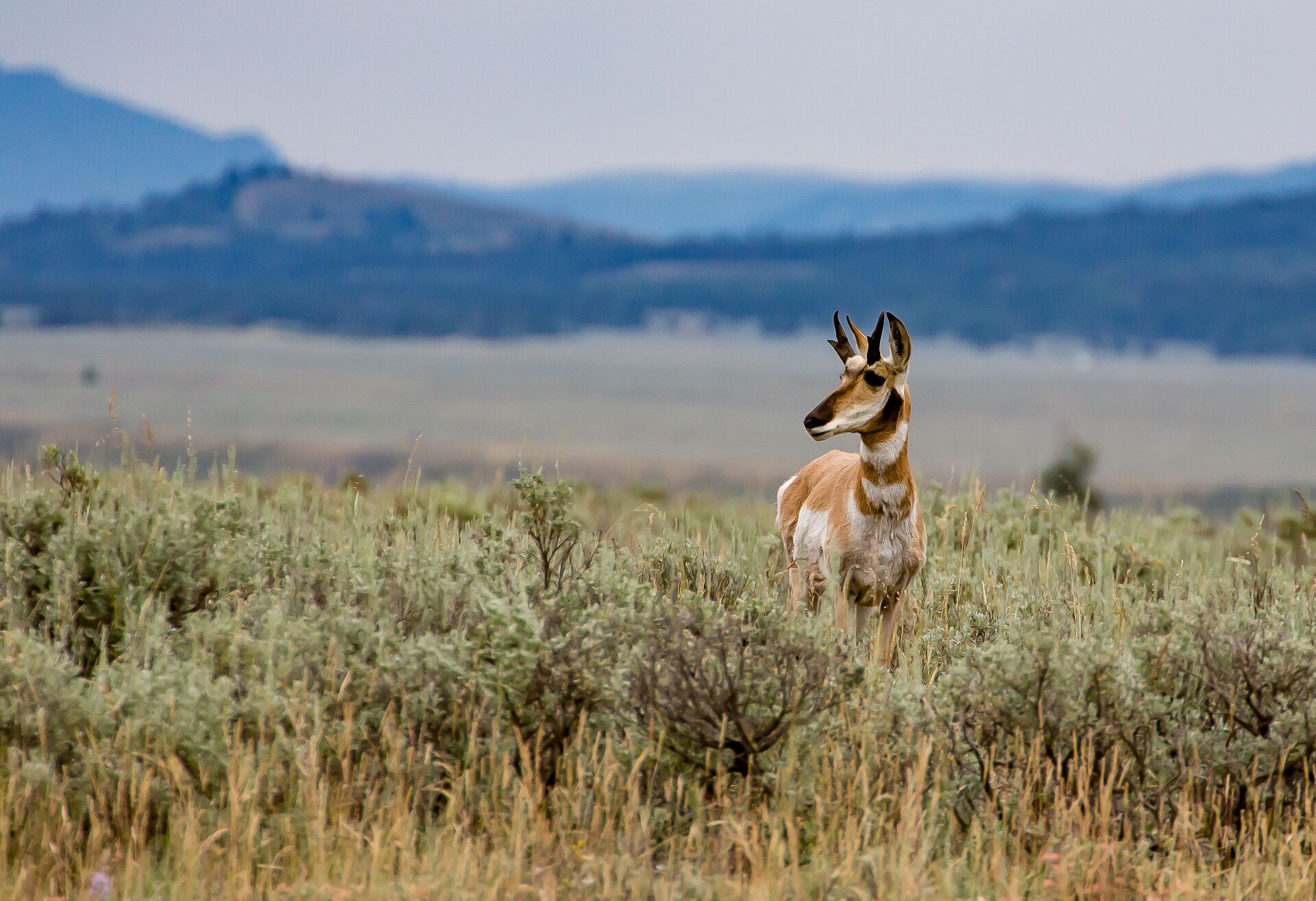
Falls before the peak tourist season June means fewer crowds and a more serene experience. Just another reason why June is the best time to visit Yellowstone National Park. Visitors can explore the park’s vast trails and iconic landmarks at a more relaxed pace, with greater ease and tranquility.
For photography lovers, a trip to Yellowstone in June means a great opportunity to capture some iconic shots. The Grand Prismatic Spring is one of the park’s most famous, and photographed, attractions. Its vivid colors making for stunning pictures. And of course, Old Faithful is a must-photograph spot. Its predictable eruptions, coupled with the picturesque Upper Geyser Basin, offer fantastic opportunities for capturing the geyser in action. You can also take some lovely images around Yellowstone lake.
Lamar Valley, known as the “Serengeti of North America,” is a paradise for the wildlife photographer. Home to bison, wolves, bears and pronghorn it’s an excellent spot for capturing the park’s natural beauty.
If you’re thinking of when to visit Yellowstone National Park for amazing photographs, June is your month.
SAVE UP TO $2,000 PER COUPLE* ON YOUR FIRST PREMIUM TOUR.
Plus receive latest offers, travel inspiration, and discover how your travels will make a positive impact. Together, WE MAKE TRAVEL MATTER®. Subscribe NowYellowstone weather in June
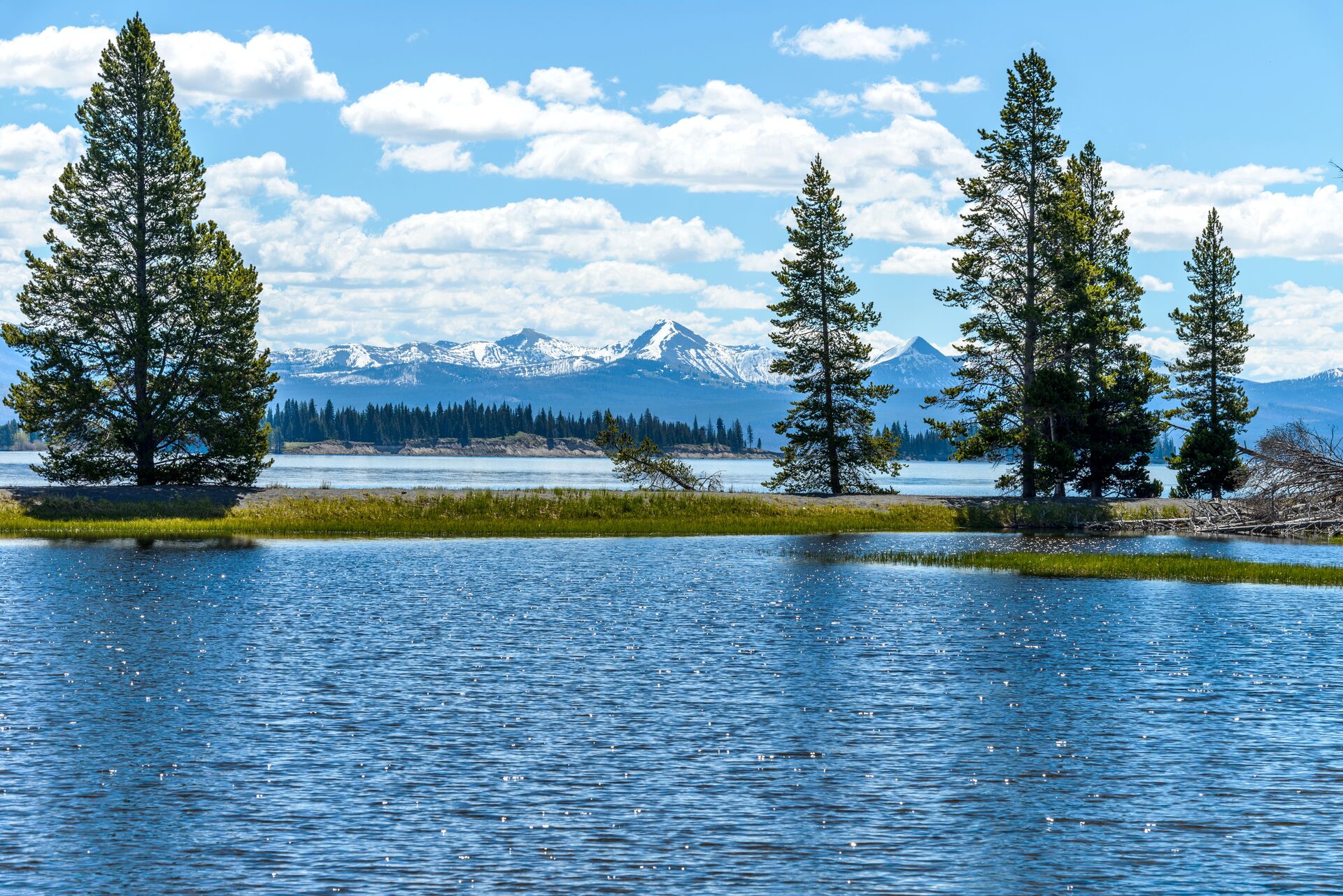
June brings mild and comfortable weather to Yellowstone National Park. Pleasant daytime highs give way to cooler evenings making it an ideal time for outdoor exploration. The park’s diverse trails, such as the iconic Old Faithful boardwalks or the scenic Lamar Valley, beckon away from the scorching heat of the summer months.
With over 900 miles of trails, there is something for hikers of all levels. One of the most popular on a trip to Yellowstone is the iconic Upper Geyser Basin, home to the famous Old Faithful geyser. This boardwalk trail offers a close-up view of numerous geothermal features, including bubbling hot springs.
For those seeking a more challenging trek, the Mount Washburn Trail rewards with panoramic views from its summit. Passing through alpine meadows, the trail offers numerous opportunities for wildlife sightings.
The Grand Canyon of the Yellowstone provides awe-inspiring views and can be explored via several trails. The South Rim Trail and the North Rim Trail lead to breathtaking viewpoints overlooking cascading waterfalls and vibrant rock formations.
Is there still snow in Yellowstone in June?
Yes, there can still be snow in Yellowstone National Park in June, particularly at higher elevations. While the park typically begins to thaw and many lower areas may be free of snow by late May or early June, snowpack can persist in the mountainous regions and on trails above 7,000 feet. Visitors should be prepared for variable weather conditions, including cold temperatures and potential snowfall, especially in early June. It’s advisable to check the park’s current conditions and trail statuses before visiting to plan for the expected conditions.
What do you wear to Yellowstone in June?
When taking a trip to Yellowstone in June, dress in layers to adapt to varying weather conditions.Being prepared for diverse weather is key to making the most of your time in the park. Start with a breathable base layer and add an insulating fleece or lightweight sweater for warmth. A waterproof and windproof jacket is essential to shield against the elements. Opt for comfortable, quick-drying hiking pants and sturdy boots with good traction, preferably waterproof. Include accessories like a hat and gloves for cooler temperatures, along with sunglasses and sunscreen. A small backpack is useful for carrying your layers, snacks, water and other essentials as you explore the park.
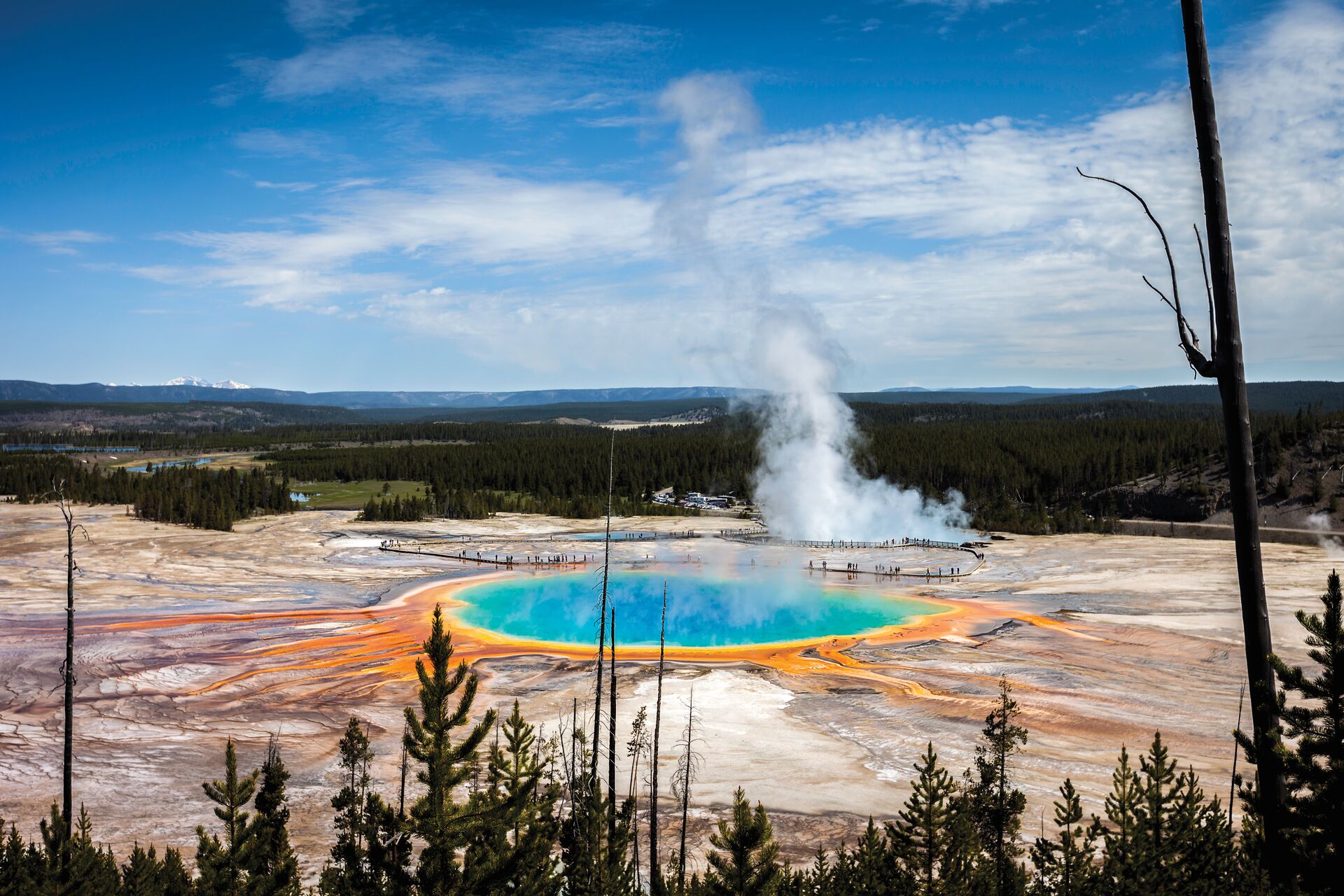
Top tips for visiting Yellowstone National Park
While June is the best time to visit Yellowstone National Park, whenever you visit consider these handy tips.
Respect wildlife and safety: Whilst wildlife spotting is an amazing experience, always keep a safe distance and never approach or feed the animals. The park issues guidelines about maintain distances, including 25 yards from large animals and 100 yards from wolves and bears.
Stay on designated trails: It’s crucial to stick to designated trails and boardwalks for your safety and to protect the delicate ecosystem. Straying from designated areas of the park can damage geothermal features or be dangerous. Follow signage and respect any closures or restricted areas.
Be prepared for changing weather: Yellowstone’s weather can be unpredictable, even in the summer. Pack layers of clothing, including a waterproof jacket, and carry essential items such as sunscreen, a hat, insect repellent, and plenty of water. Be prepared for temperature changes, especially at higher elevations.
Leave no trace: Help preserve the park’s natural beauty by leaving no trace. Pack out all your trash, dispose of waste properly, and respect the park’s flora and fauna. Leave the park as you found it, allowing future visitors to enjoy its pristine wilderness. The National Park Service suggests travelers take the Yellowstone Pledge, a personal promise you make to yourself and the park: “I pledge to protect Yellowstone National Park. I will act responsibly and safely, set a good example for others, and share my love of the park and all the things that make it special.”
Plan and prepare: Before your visit, research the park, its attractions and the best times to visit specific areas. Yellowstone is vast, and having a well-thought-out itinerary will help you make the most of your time. Check the park’s website for any updates, closures or safety advisories – you can do so here. Of course, if you travel with Insight everything is planned for you. All you have to do is enjoy yourself.
LIKED THIS POST? SHARE WITH YOUR COMMUNITY

